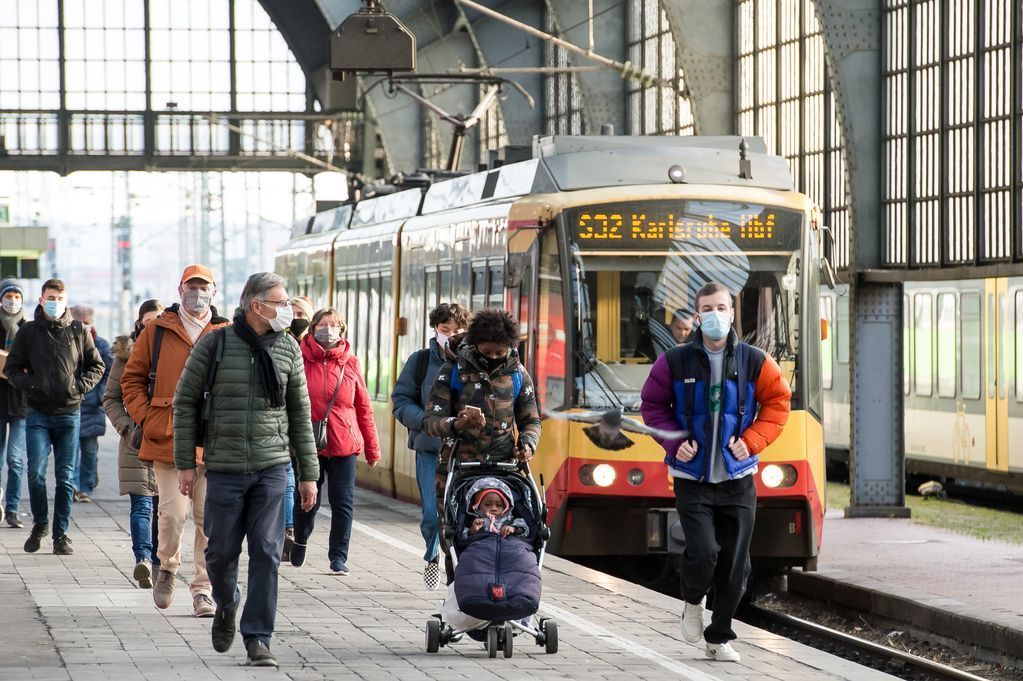EU Revises Rail Rules, Strengthens Passenger Rights

2021 European Year of Rail – Illustration of commuters at the railway station of Karlsruhe, Germany. © European Union 2020 – Source : EP
The European Council announced this week that it had revised a set of regulations covering EU rail rules with the aim of securing passenger rights including facilitating accessibility for people with disabilities, making it easier to transport bicycles, and clarifying compensation procedures for delayed rail services.
The revised rules also include reinforced provisions on re-routing and on the use of “through-tickets”, aimed at enhancing protection in the case of missed connections.
“This regulation is a major step forward regarding the accessibility of persons with reduced mobility to railway services. Infrastructure managers and railway undertakings will have to adapt and progressively make railway services accessible to all,” said Council President Pedro Nuno Santos.
“Another breakthrough of this regulation is the obligation to provide spaces for bicycles on trains, which normally are not able to offer door-to-door services. The integration of soft transport modes will improve passenger mobility and increase the attractiveness of railways,” said Santos, who is also Portugal’s infrastructure minister.

2021 European Year of Rail – Commuters at the railway station of Karlsruhe, Germany. © European Union 2020 – Source : EP / Michel Christen
Main changes to the rules include:
– stronger rights for people with disabilities or with reduced mobility – they will be entitled to receiving assistance when boarding and disembarking from trains applicable to all regional and long-distance trains in the EU. Meanwhile, advance notice – to be given by persons with disabilities or reduced mobility who require assistance – will be reduced from a minimum of 48 hours to 24 hours, and voluntary arrangements covering shorter pre-notification periods will be encouraged
– the right to buy a ticket on board if there is no accessible alternative for buying the ticket beforehand
– improved provision of information, training of staff and clearer rules on compensation for lost or damaged mobility equipment
– it will become easier for passengers to take their bikes on board. Each train will be required to have at least four spaces for bicycles and passengers will be informed of available capacity. Member states may also set this number higher if there is a greater demand
– rail companies will be encouraged to increase their offer single tickets which are valid for successive legs in a journey (aka through-tickets) – and safeguard the rights to re-routing and compensation in the event of delays or missed connections. Through-tickets will be mandatory if connecting trains are run by a sole railway entity
– new rules will clarify and expand protection in cases where passengers need re-routing to their final destination. Rail operators will be required to re-route the passenger in all circumstances, including cases requiring alternative modes of transport. If the operator has not managed to communicate the available options to the passenger within 100 minutes, s/he may take alternative public land transport on her/his own initiative and the train company must reimburse the necessary cost
– minimum compensation for delays will remain unchanged: 25 percent of the ticket price for a delay of 60 to 119 minutes, and 50 percent of ticket price for a delay of 120 minutes or more.
Rail companies will not need to pay compensation for delays or cancellations in circumstances that could not have been avoided, such as extreme weather conditions, major natural disasters or major public health crises, including pandemics. Rail staff strikes will not be covered by this exemption.
The Council decision still needs to be adopted by the European Parliament before being published in the EU Official Journal.
The revised regulation is set to take force 20 days after its publication and will start to apply two years later, with the exception of the bicycle space requirements, which will be applicable four years after the regulation goes into effect.





